To many people living in the US, the idea of retiring to Costa Rica is an idyllic fantasy. Life in “the rich coast,” a biodiversity hotspot surrounded by tropical rainforest, is about simplicity, self-sufficiency, and sustainability. The government has pledged to reach carbon neutrality and eliminate single-use plastics by 2021. Costa Rica offers a chance to rewild, to connect with nature and to escape the daily stressors from one’s former life. With no more boss, no more cubicle and no more commute, where fresh produce, clean air, and freedom abound, it begs the question: Is the new American Dream to move to Costa Rica?
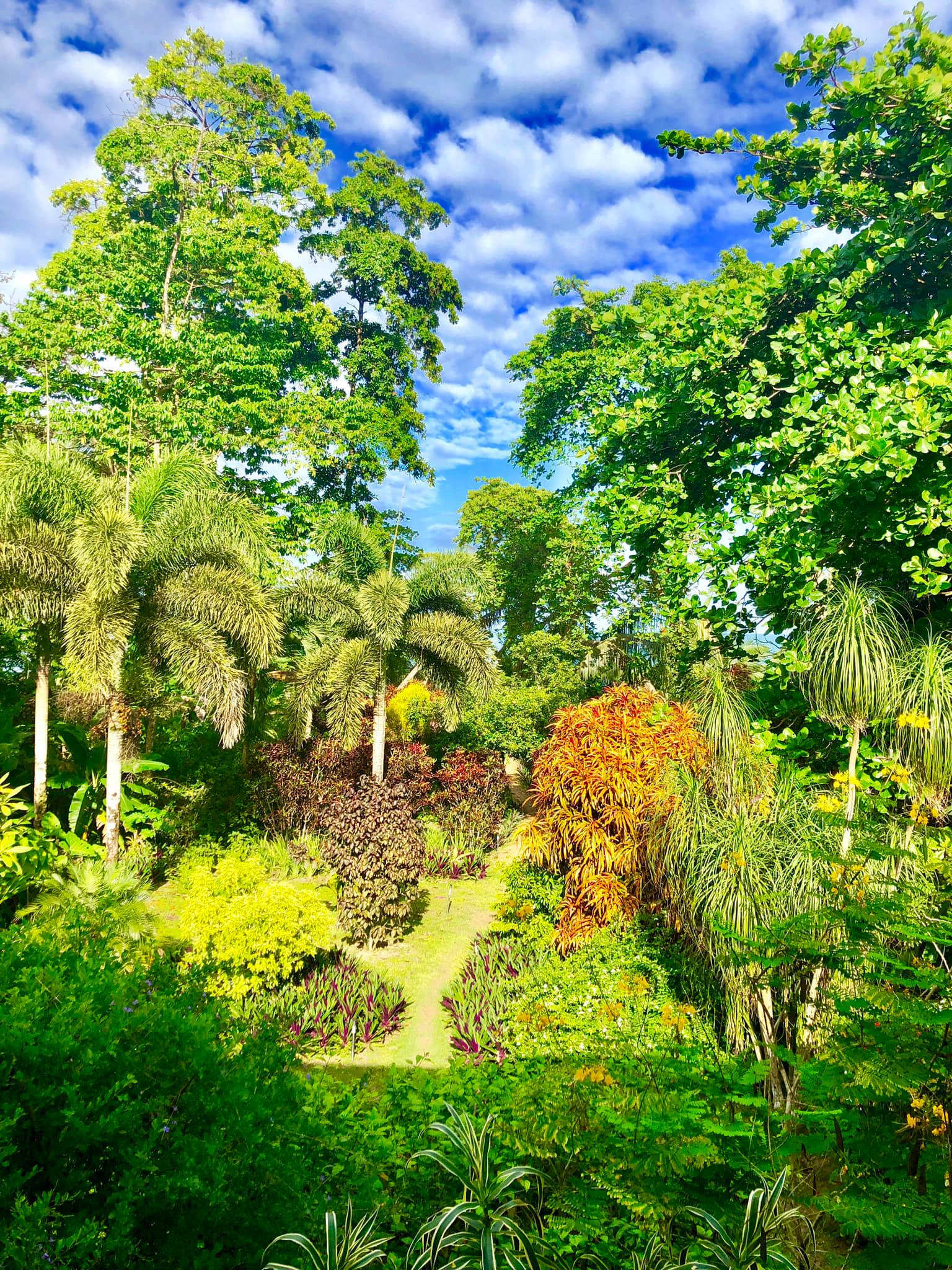
Two years ago, Terry Romp retired to Puerto Viejo, located on the Caribbean coast of Costa Rica, to chase the “Pura Vida” lifestyle and enjoy his inalienable right to healthy living. “Being self-sufficient is what appeals to us about living off the grid - doing my small part to leave the world a better place and being a part of the solution and not part of the problem.”
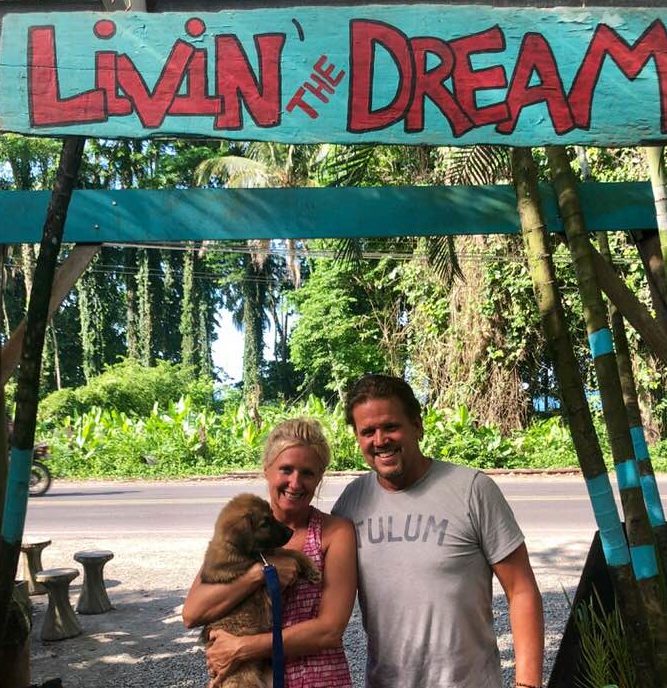
THE FAMILY BUSINESS
Prior to packing up everything he owned and buying a chunk of jungle in the Costa Rican rainforest, Terry Romp established a legacy of sustainable practices within the produce buying industry by focusing on local products and seasonality well ahead of his time.
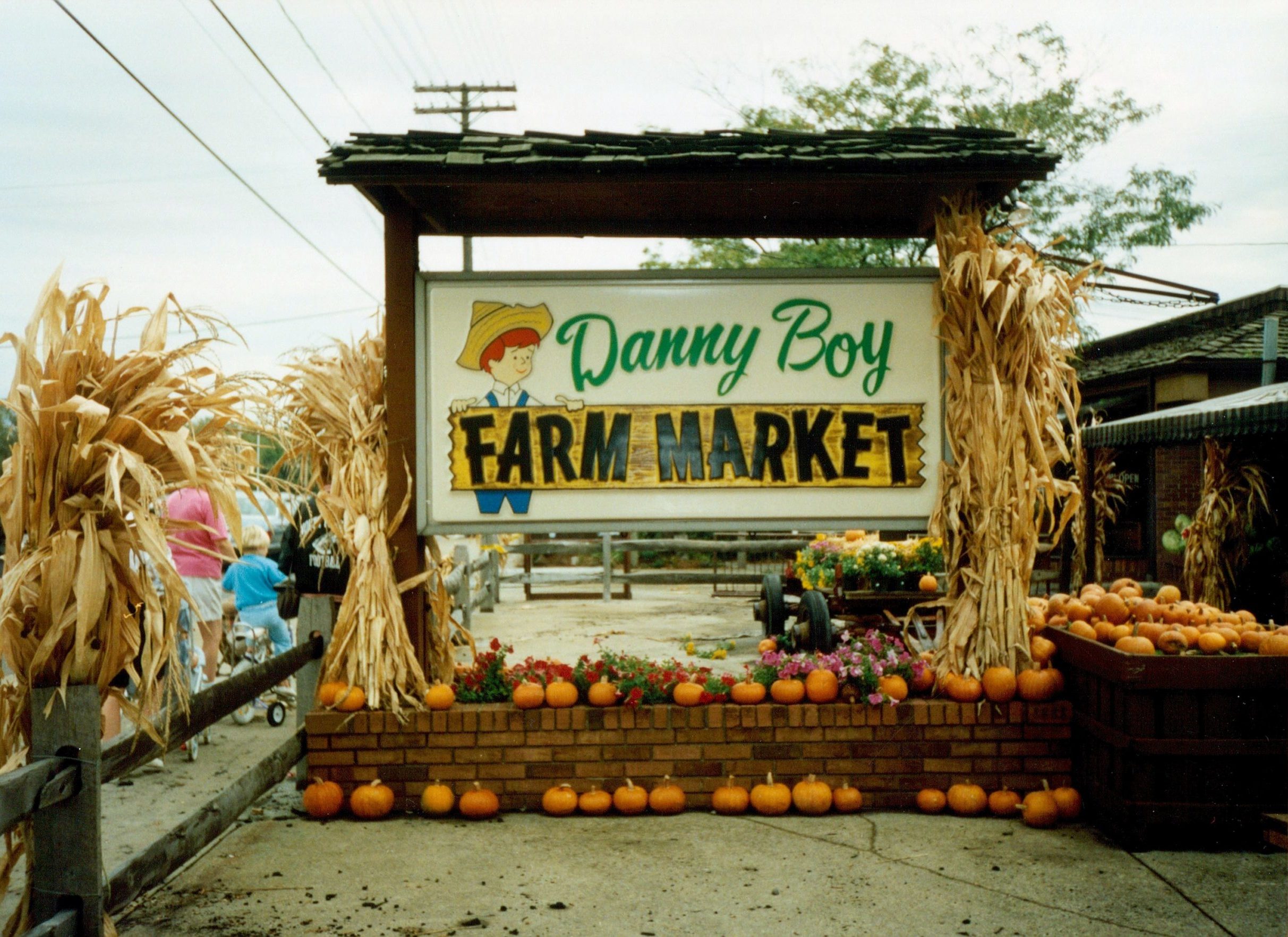
Terry comes from a long line of food wholesalers, and he spent the majority of his career, over 22 years, operating Danny Boy farm market ("Danny Boy's") in North Olmsted, Ohio. Terry’s great-grandfather started the business out of a 3-car garage in 1948, beginning with farming before transitioning into a wholesale commission house and then into retail, packing their produce under the Danny Boy brand label. Over the years, Danny Boy's expanded into a full-fledged farmers market business and a local mainstay that grew to include a bakery, deli, butcher shop, fish market and a huge selection of produce with an emphasis on offering as much locally grown produce as possible. Terry consistently built relationships with Amish farmers throughout Ohio to source local, organic products using more sustainable practices than larger agricultural corporations.
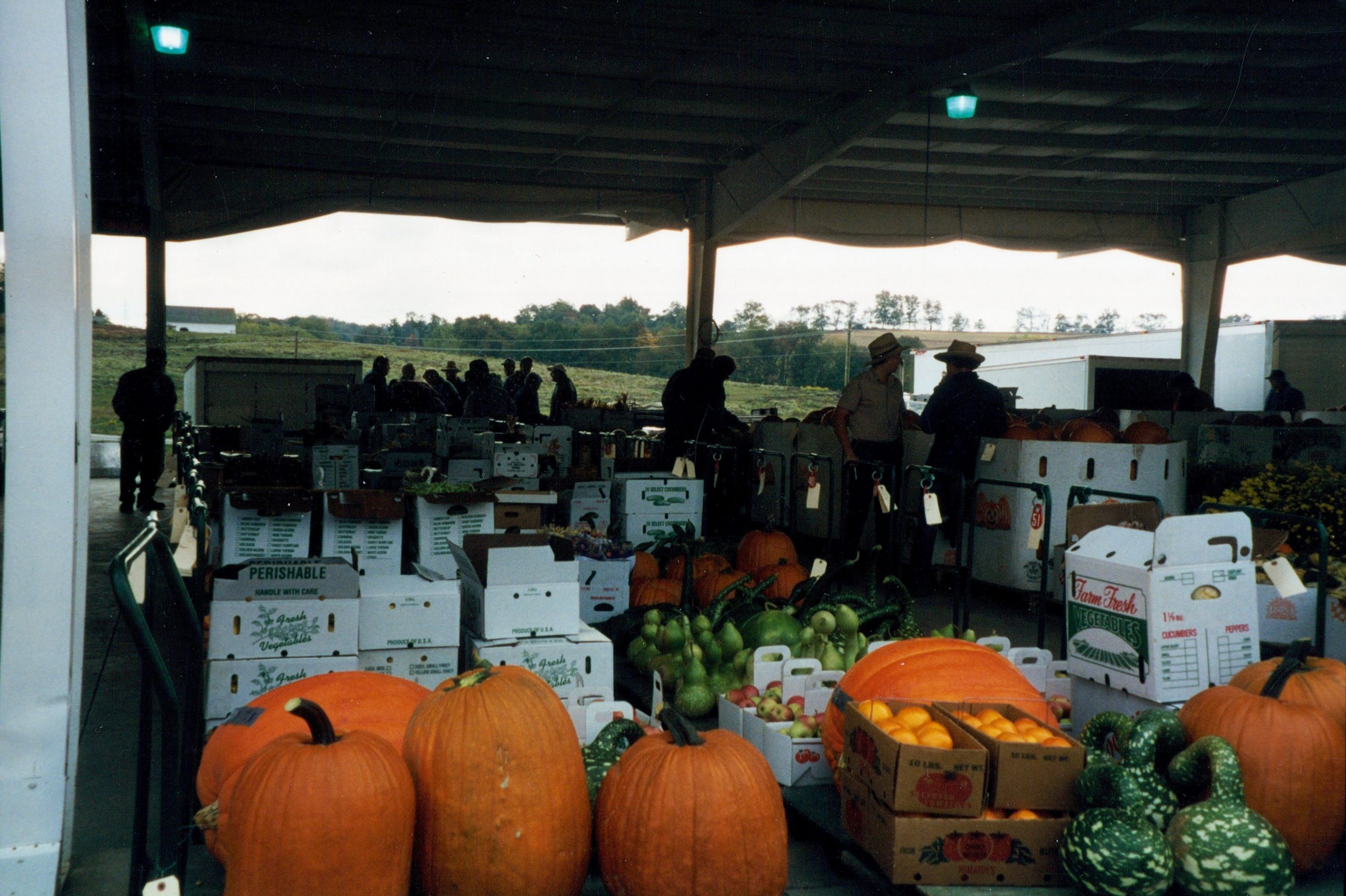
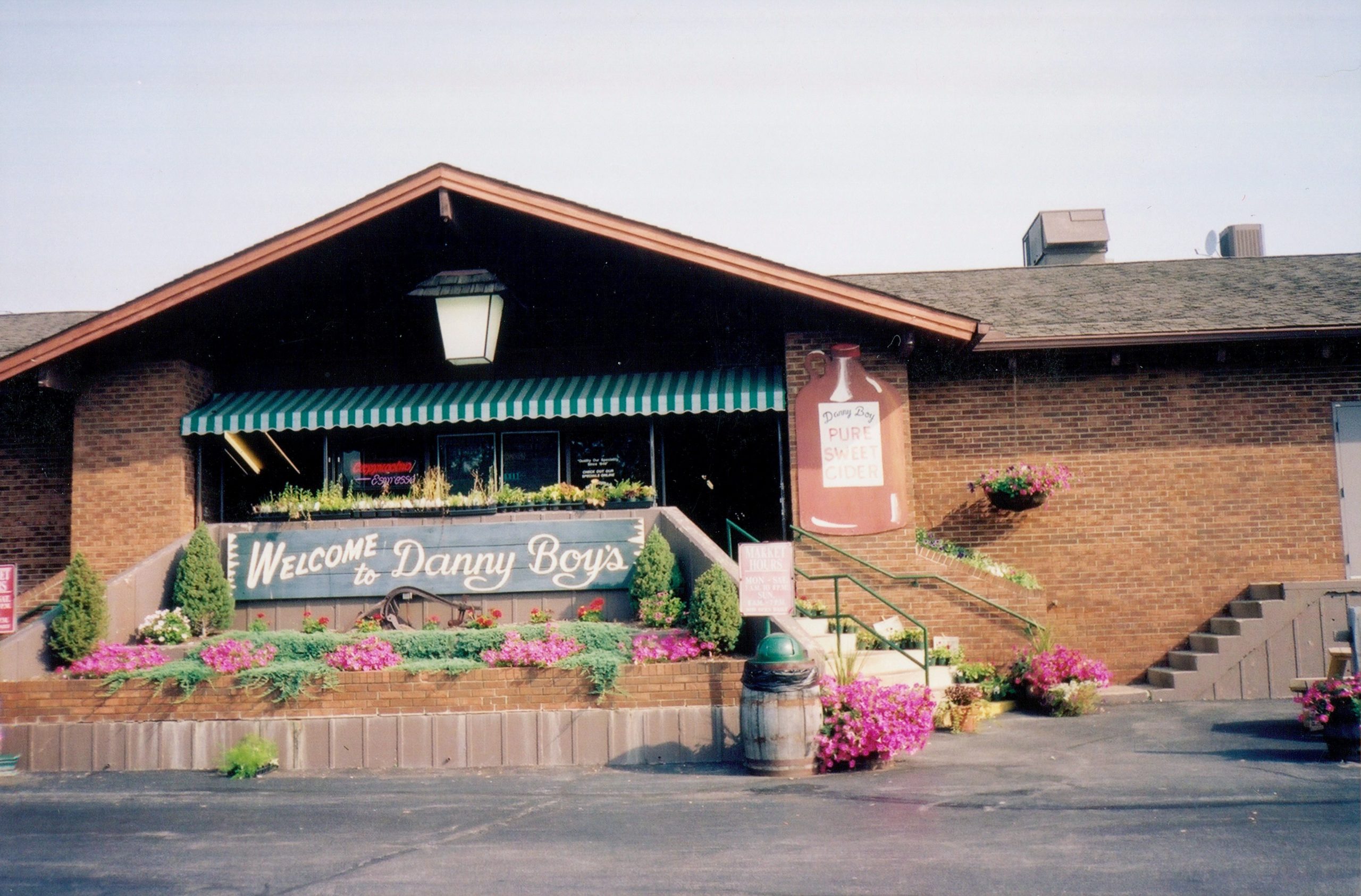
As a fourth-generation upstart, Terry joined the family business at age five by sweeping the floors. “By age 12, I was a capable produce guy, able to do most anything the older guys could do. A few days after getting my license at 16, I was driving a truck to market and also acting as the closing manager a couple nights per week, when I wasn’t playing sports.” Terry officially took over the business in 1984 at age 22.
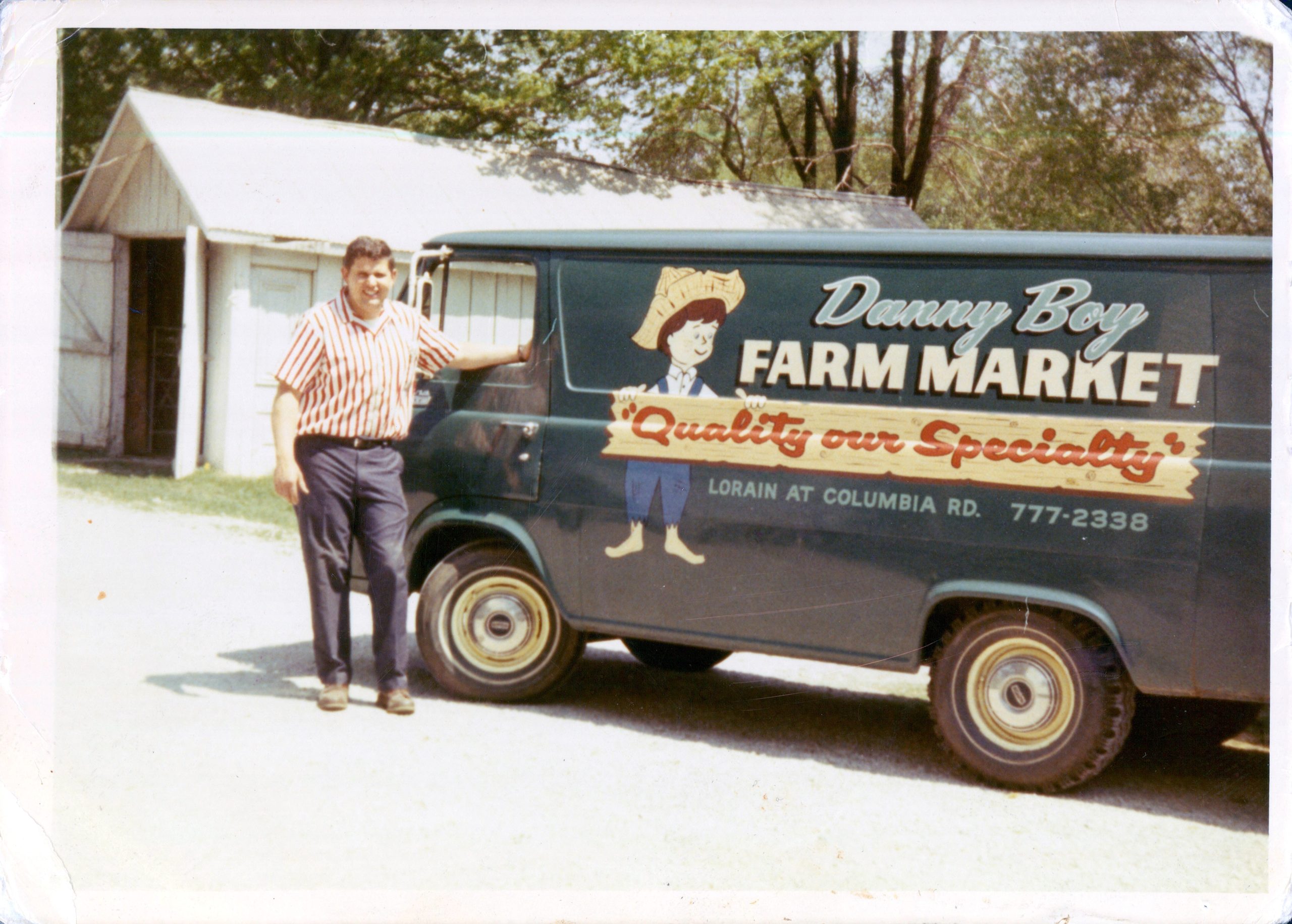
Working seven days a week, Terry often woke up at 3:15 AM, drove down to the Northern Ohio Food Terminal, spent five hours buying produce, then worked the rest of the day at Danny Boy's until closing at 9 PM. Despite the long hours, he didn’t view it as a job, but rather a life’s work. “It truly is in the blood! All of my adult life has centered on this. Yes, it was my job, but it was also my passion. I can’t think of any vacation I took that I didn’t go look at stores, or markets, or farms, or some kind of food production facility. Just last week we had friends visiting from the States and we did both a coffee and chocolate tour. It’s great, even though we are retired, we continue to learn. My dad always told me, ‘You only need one idea, everybody does something better than you.’ So really you can learn something from everyone and I have really found that to be true.”
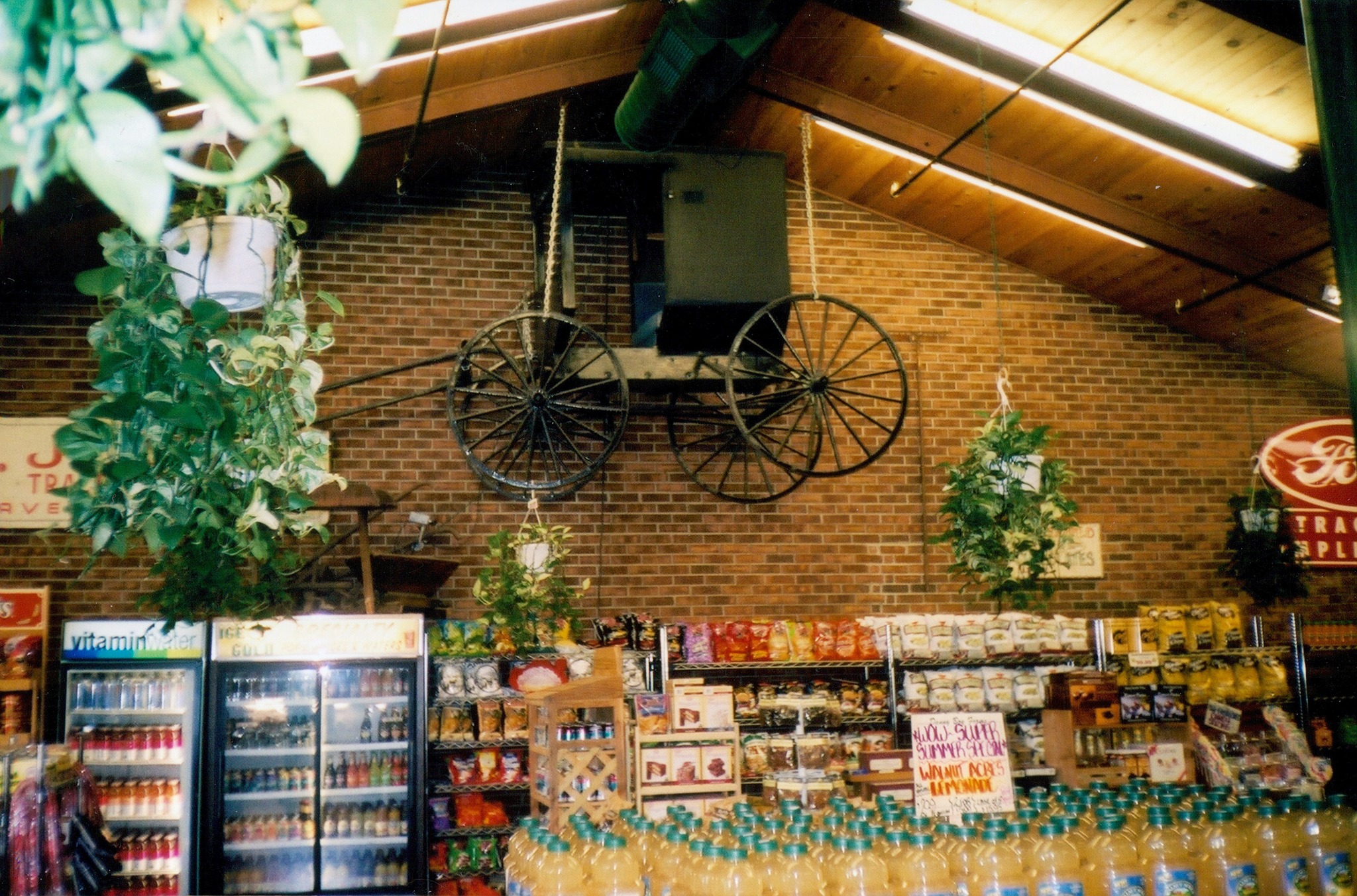
WHOLESALE WHOLE FOODS
In the second stage of his career, Terry transitioned from controlling the reins of his family market to joining Heinen’s, a regional grocery chain, to expand its produce buying operations with his expertise in buying local.
https://youtu.be/i8JgcrWI_Jo
Although the scale increased with his new task to oversee produce sourcing for over 20 stores across the Midwest, Terry’s objective with Heinen’s remained the same, “the goal was always to buy and sell the best.” In the past, Heinen’s were known as premium locally owned stores, yet they offered very little local merchandise. That soon changed. “I took the successes I had experienced on an individual level and applied them to the bigger stage and it worked fantastically. The ‘local’ buzzword was sweeping the nation and no one in the country did local better than Heinen’s.” Terry had spent half his lifetime building relationships with the best growers around the planet and he understood the right time of year to source each and every produce item. “Being in the business my whole life, I had a very good general idea of seasonality, where the best grower regions were at any given time of the year, for each individual item. I also was fortunate to know who some of the best growers were in each area. But, it really is a constant learning curve that really never ends. Fortunately, I had the strong support of the ownership to do whatever was necessary to source the very best, which included visiting farms in California, Argentina and elsewhere to personally inspect where our produce was coming from. This included local, regional, national and international farms.”

PURA VIDA
It took Terry several years of planning for post-retirement, including going on scouting trips to Belize, Roatan, Mexico, and the Dominican Republic, before deciding on Costa Rica. He weighed several factors, including healthcare, infrastructure, government stability, the threat of hurricanes and overall safety. Over 25% of Costa Rica's national territory is protected, including 29 National Parks. Although Costa Rica is only the size of West Virginia, the extreme elevation changes and the juxtaposition between two separate oceans (the Pacific and the Caribbean Sea) give it distinct microclimates. The weather conditions remain tropical year-round and the water temperature only varies around five degrees throughout the year as well. Ultimately, Costa Rica’s plentiful and immersive nature, as well as its welcoming people, won him over.
Read next on TOJ: Canyoneering in Costa Rica: The Wild First Descent of Gata Fiera Canyon
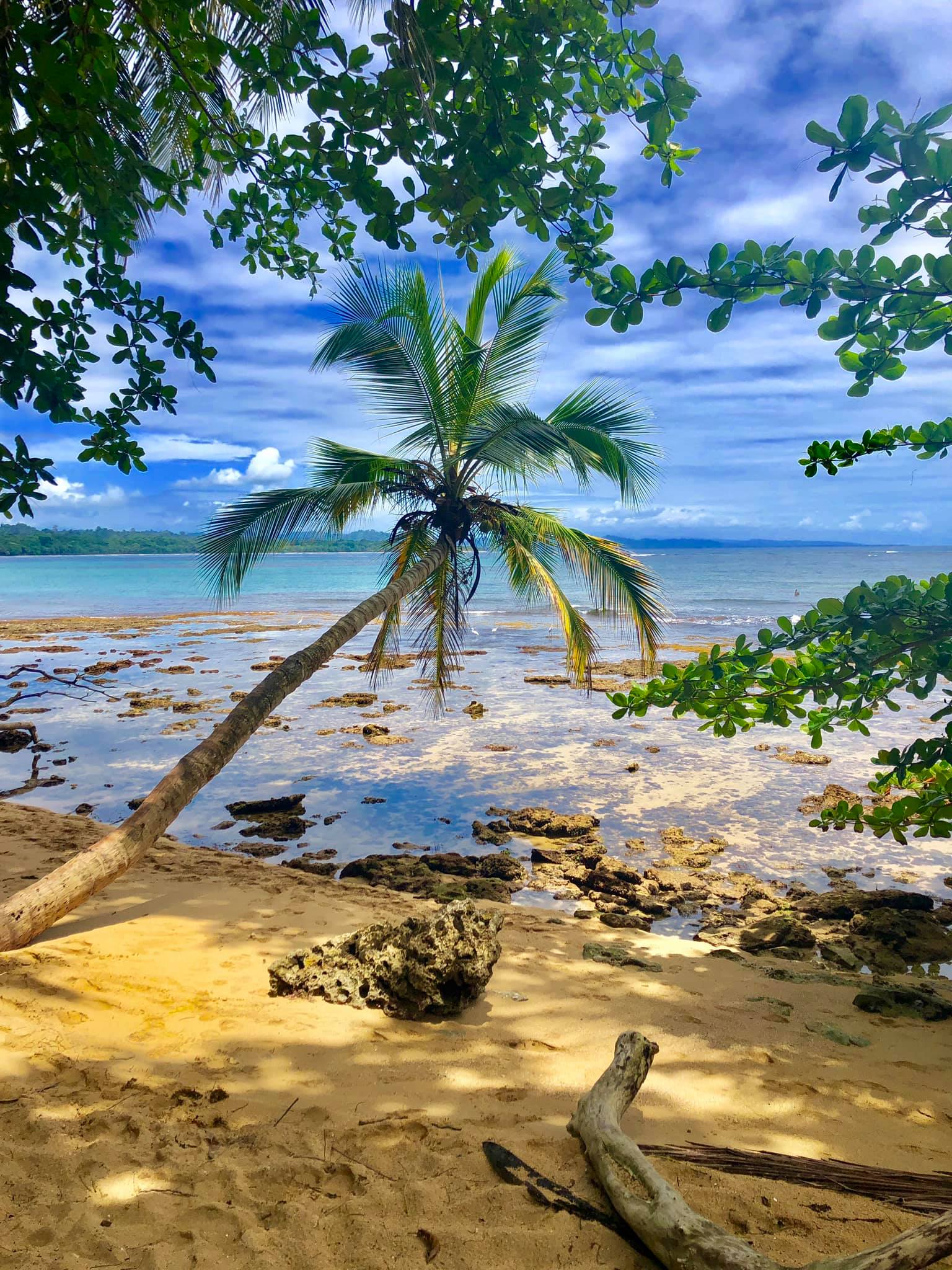
Narrowing it down further, Terry pin-pointed Puerto Viejo, a small coastal town that boasts some of the most spectacular beaches in the country. “Several things about Puerto worked for us. I usually seek the road less traveled and the southern Caribbean is that! To us, it’s more authentic, less Americanized. There are 44 countries represented in our little peninsula sticking down into Panama with a truly international feel and the food choices reflect that. We love the large Jamaican influence. The terrain is very lush and the rain is usually more spread out, which avoids the drastic wet and dry seasons found elsewhere. But the clincher was the welcoming people of this truly small community. It already feels like home. Hardly a day goes by without seeing five people I know on our way into town.”
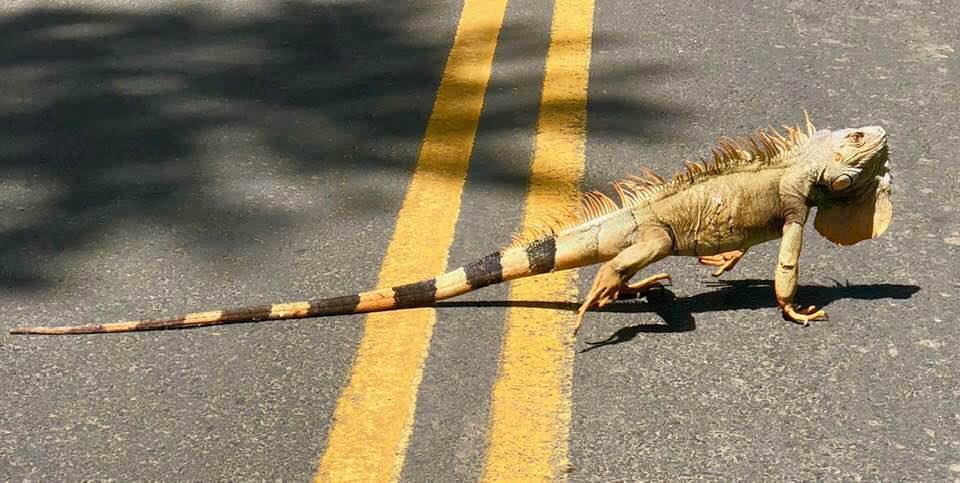
To some people in Terry’s former life who are still plugged into the rat race, the idea of uprooting their entire life to move to a new country sounds daunting. To others, living a simple life in the jungle seems monotonous. “One of the first questions I get from friends and family back in the States is ‘Aren’t you bored?’ That hasn’t happened and I don’t anticipate it ever will. There is hiking, biking, swimming, snorkeling, boating, kayaking, surfing, tours of all kinds, dancing, traveling around the region, zip lines, whitewater rafting, waterfalls, hot springs...it’s pretty endless. Also, my wife is a conductor of the jungle from our porch daily. Aside from our three dogs and three cats, she interacts with monkeys, parrots, toucans, and sloths. We also have been fortunate to have several friends and family visit and it’s great to have the time to spend with them.”
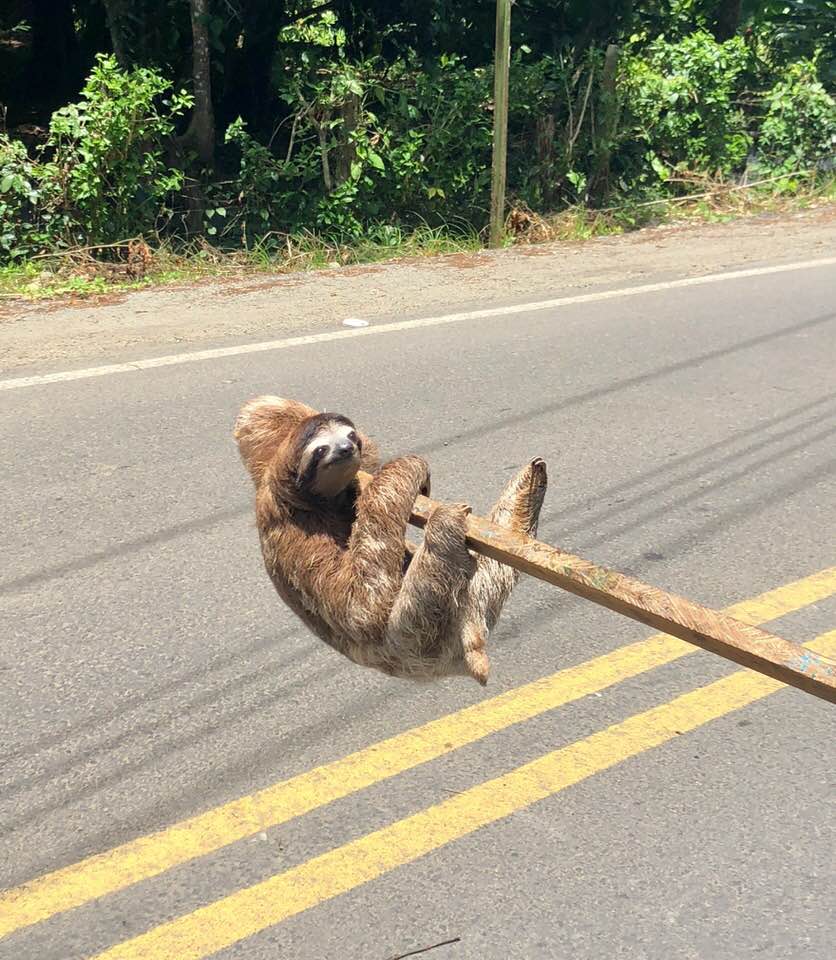
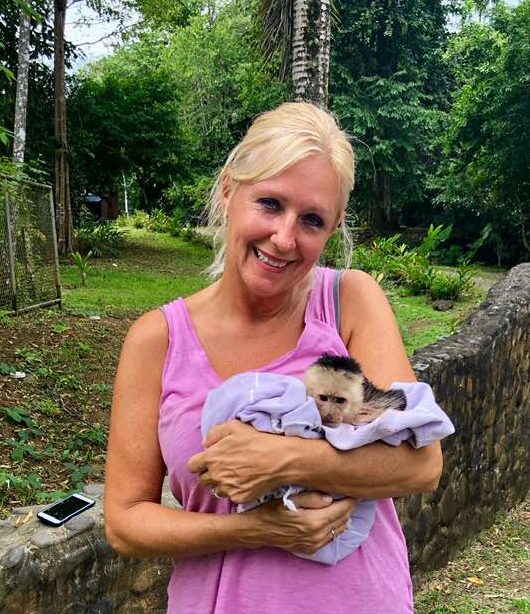
PERMACULTURE FOUNDATIONS
When it came to deciding between buying a pre-built vacation house or creating a living space all his own, Terry reached for his machete. In researching the area, he noticed a plethora of housing choices, from open-style housing like much of the native population to fully-enclosed, air-conditioned, American-style houses that some expats have constructed to make them feel more at home.
“Simple feels good and right to us.”
Abandoning the comforts of Western culture to live off the grid requires total commitment, one that Terry fully embraced. He purchased a four-acre parcel of raw jungle and spent weeks trimming down the dense vegetation with his machete to carve out a space to call home. “Being self-sufficient is what appeals to us about living off the grid - doing my small part to leave the world a better place and being a part of the solution and not part of the problem. Simple feels good and right to us.”
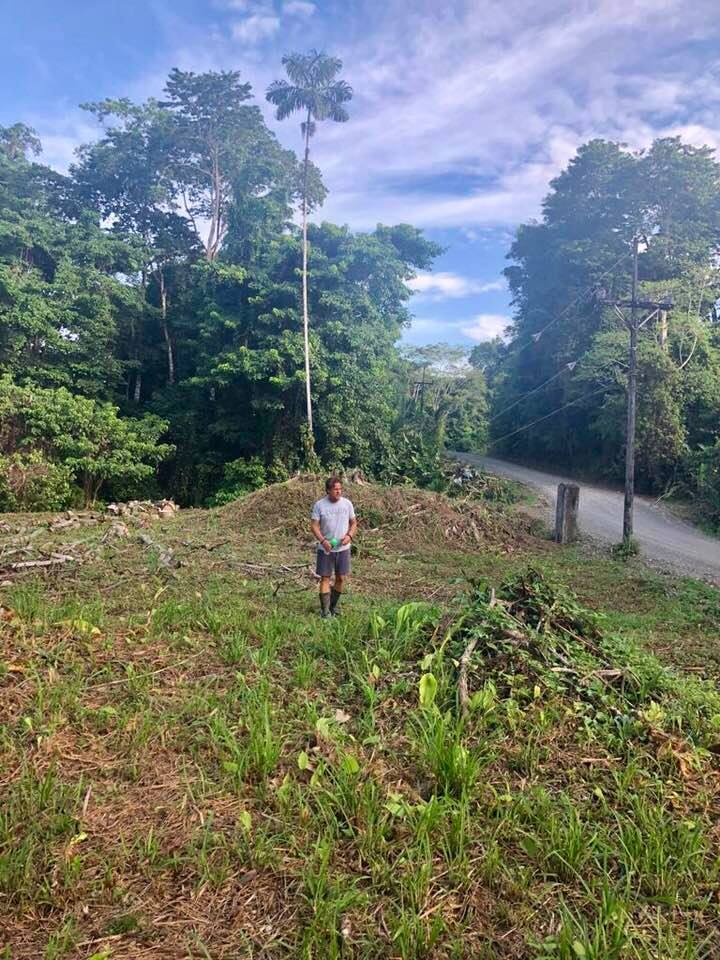
Terry studied with the local permaculture school Finca Tierra to learn ecological methods to design his home to be self-sufficient, integrative and sustainable. “We will have many large windows on all sides of the house and both gable ends will be open. But, no glass anywhere. Everything will be screened for maximum airflow. Additionally, our sewer system and water catchment system are based on permaculture principles and hopeful will go totally solar. In our garden, we’ve planted multiples of all tropical fruits throughout our four acres of rolling jungle.” With the use of conscious permaculture techniques and natural building materials, Terry’s home will simply blend into the landscape, rather than take away from it.
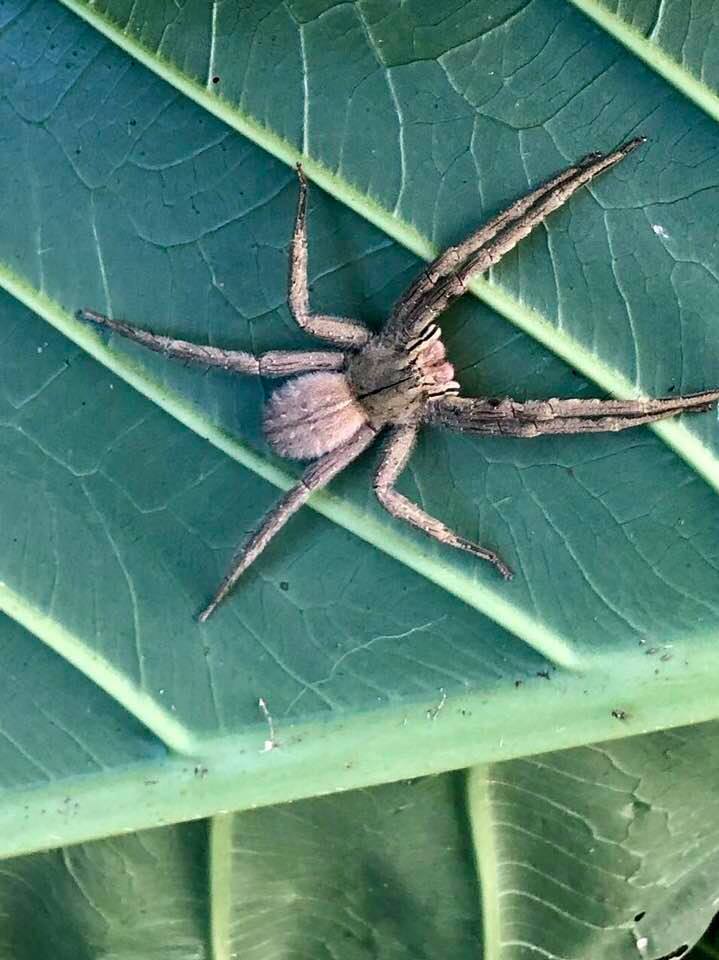
BUILDING A NEW LIFE
So what does it take to uproot your entire life in the States and retire to expat life in Costa Rica? Can anyone do it? What are the prerequisite skills and experiences to pull off such a giant life transition?
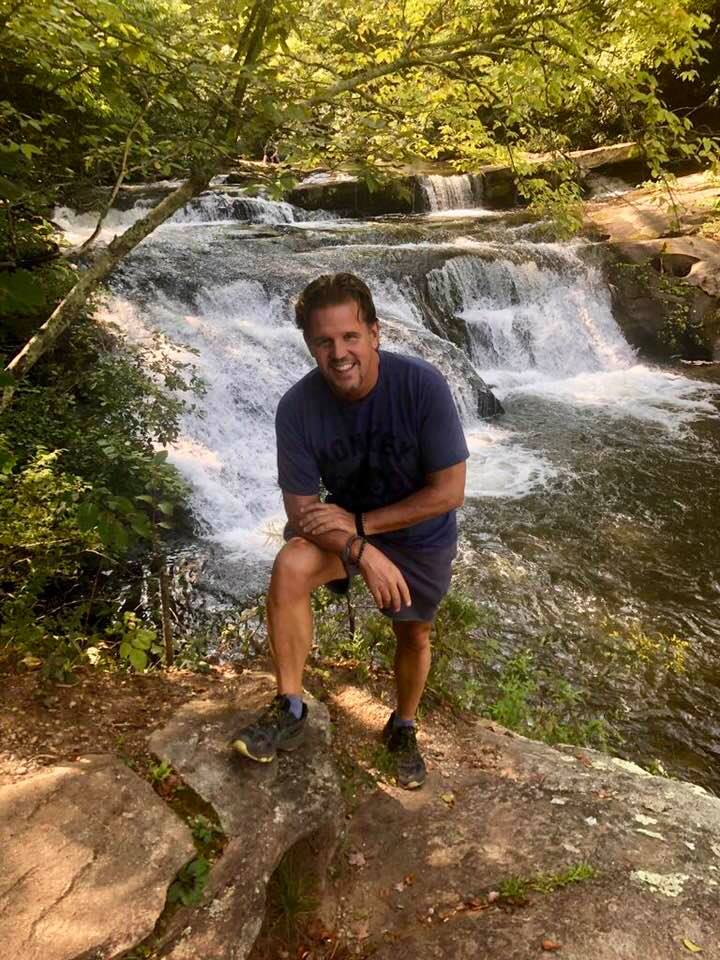
When Terry was 10 years old, his father bought an 80-acre farm in Medina, Ohio that had been abandoned for many years. The place was a mess. Early on, Terry learned how to use many of the tools necessary to revitalize the land into a working farm, tools that most parents would never let their 10-year-old get their hands on. “My dad always had high expectations of me but also provided me opportunities by exposing me to many things at a young age - using chainsaws, driving tractors, etc. As a result of buying the farm, my dad spent most of his non-working time there, which made me almost become the man of the house and take over all those duties, including, lawn mowing, bush trimming, and gutter cleaning.” In addition to learning these practical skills, Terry’s expectations to work in the family market starting at the age of five built up his work ethic and gave him the confidence to interact with people of all types.
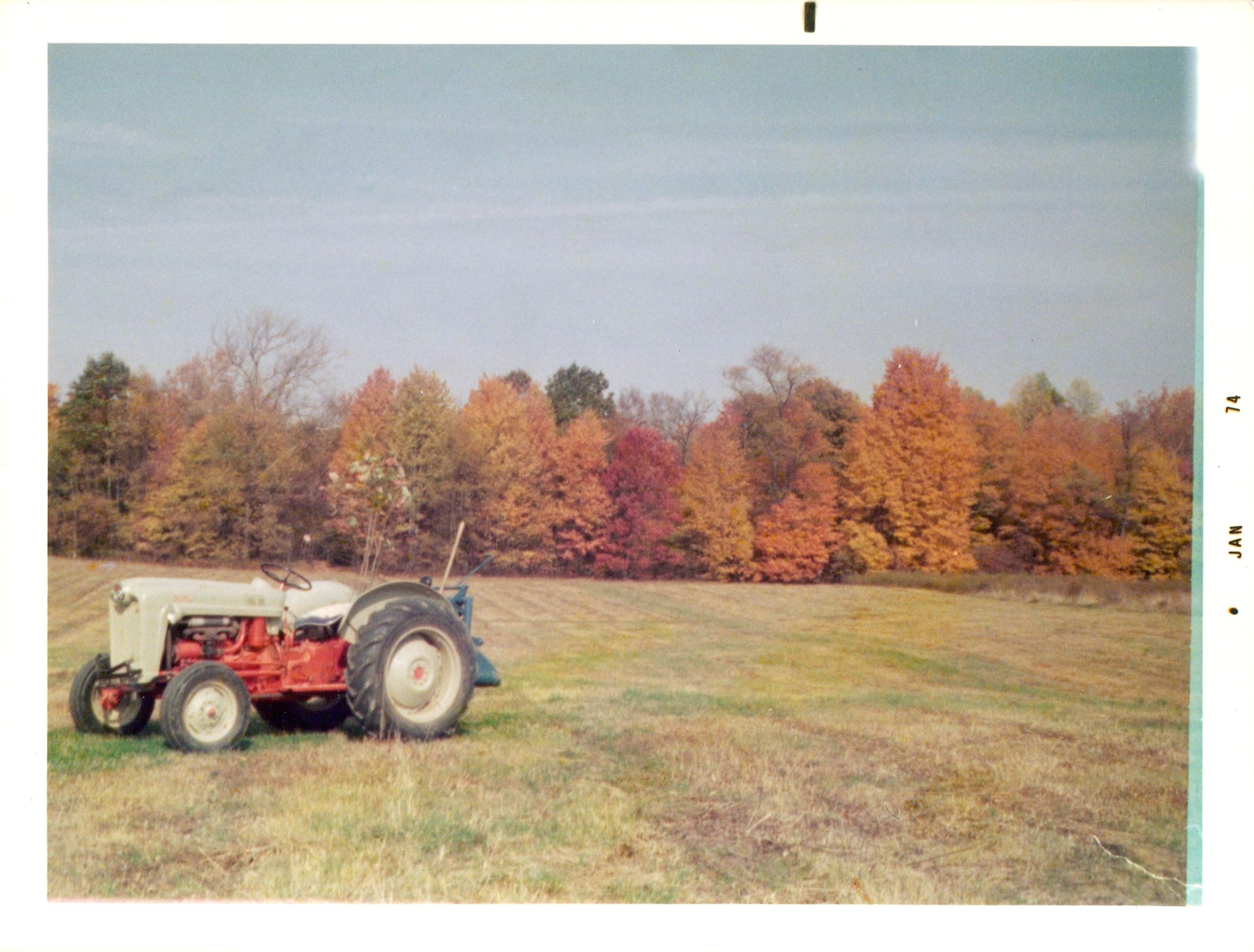
“When I was 19, two other significant events took place. We put a large addition on the market, which required all the trades that I had been learning over the years, and I bought a small fixer-upper house, which needed a complete renovation. Both of these projects gave me additional skills and a real education in construction. My dad was In Arizona for much of the winter during the market construction, so I was kind of running the show in sync with the contractors. When both turned out fairly well, again my confidence was boosted.”
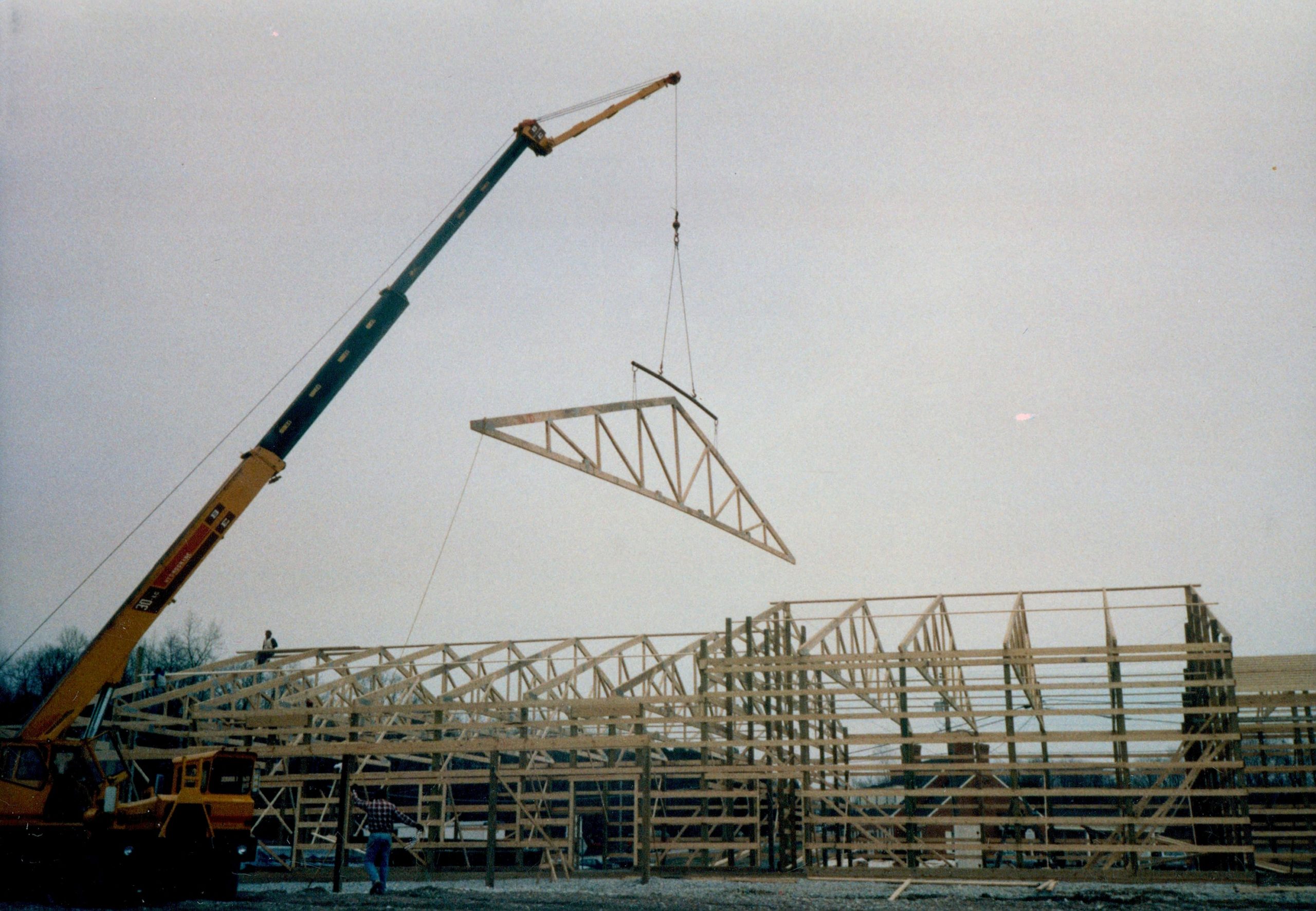
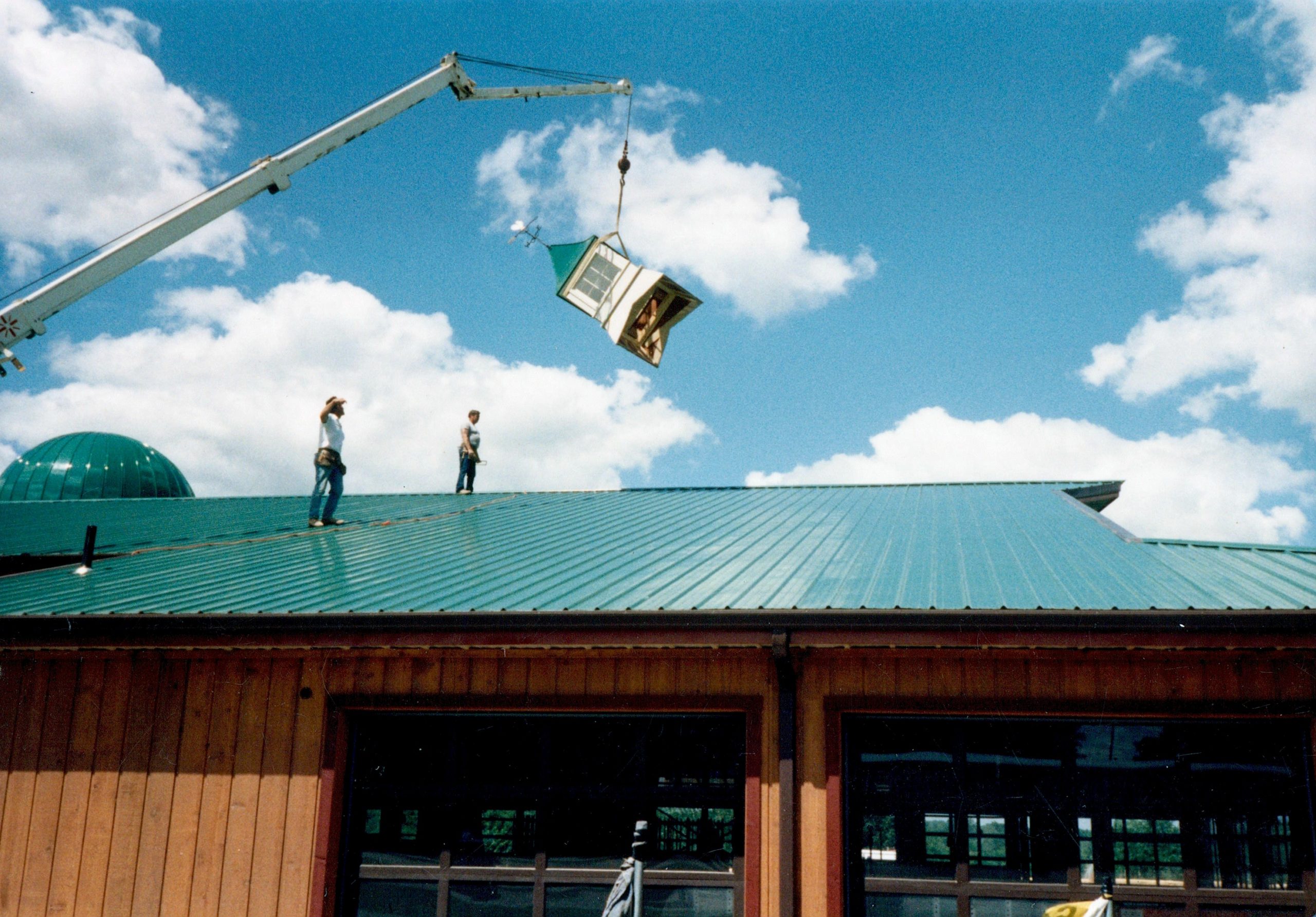
These were the beginning of many projects over the years that Terry would go on to be involved in from land prep, to design and full construction, including being his own general contractor. However, each of these projects was located close to home in Ohio. Building in Costa Rica came with a steep learning curve in many ways - from understanding different laws to working with foreign building styles and materials, to dealing with a new climate - not to mention the language barrier.
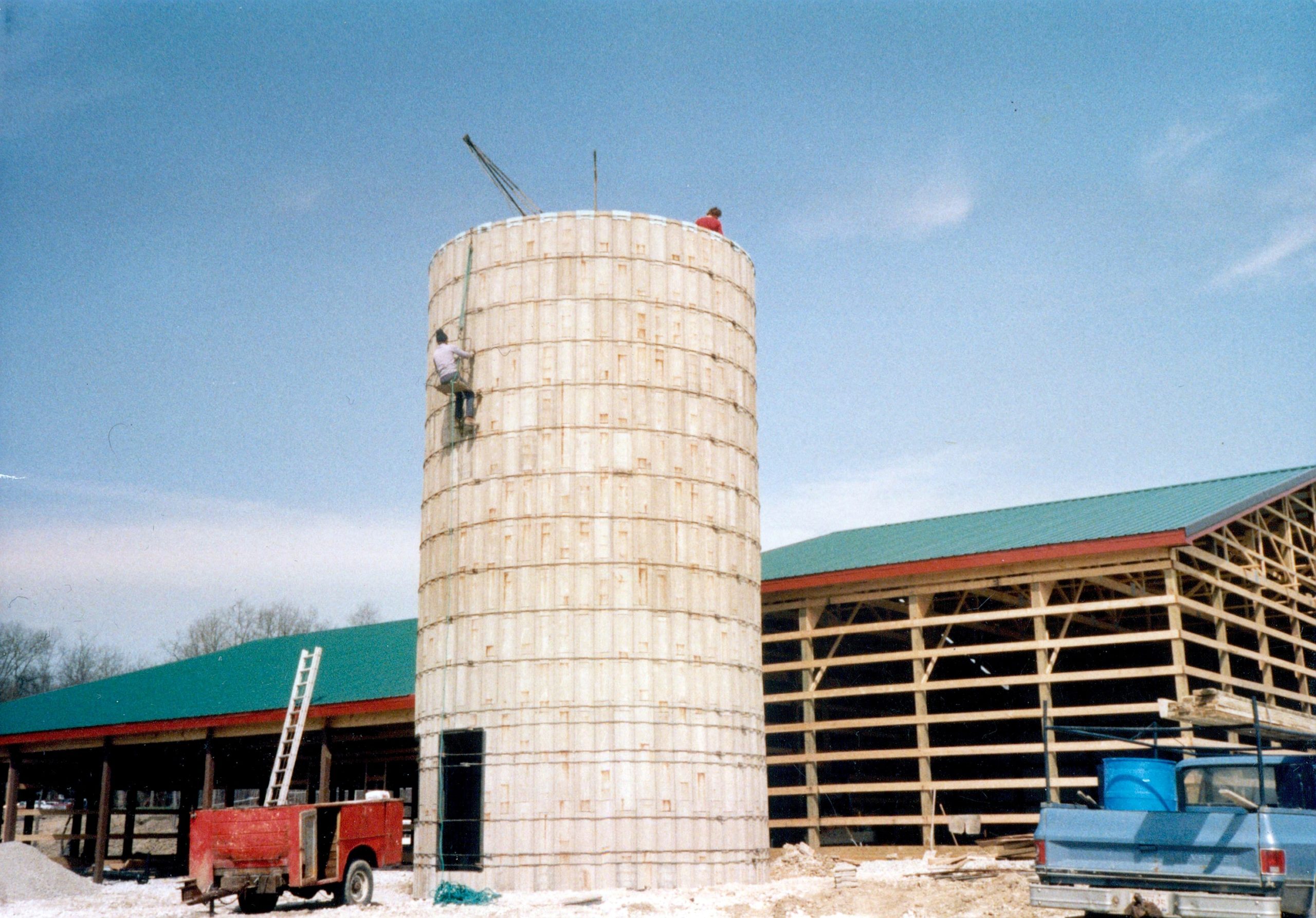
“The exposure to different cultures and ways of life really opens your mind and your heart.”
The other big determinant that planted the seed in Terry’s decision to retire in Costa Rica was his travel experience, starting with childhood. “We usually took a couple trips a year, mostly skiing. We went to Jamaica in 1970. We went to Hawaii twice in the late ’70s and then to the Cayman Islands In 1980. Those experiences made me feel comfortable with travel, especially outside the 48.” Terry carried on the tradition of international travel with his own children and his two eldest now live abroad full-time, one in Europe and another in Asia. “The bottom line is, the exposure to different cultures and ways of life really opens your mind and your heart. It also kills the fear that is the inherent base of stereotypes and racism. Travel gave me the confidence that I can go and do my thing anywhere on the planet with confidence.”
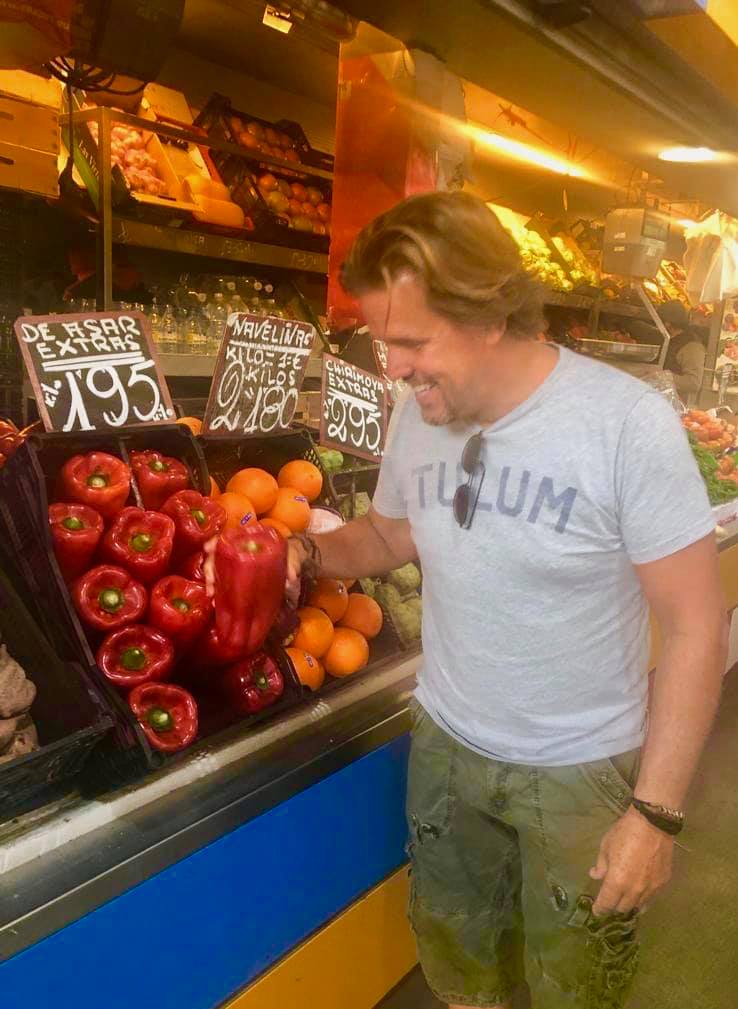
PRESERVING NATURE
Once construction is complete on his home, Terry plans to get involved with helping to make conscious ecological improvements at the community level related to healthy and sustainable food production. Although tourism is by far the biggest driver in the Costa Rican economy, bringing in 1.7 billion dollars per year, the traditional agribusinesses of bananas, pineapples, and coffee still have a stronghold on the country. “Unfortunately, these multinational corporations like Dole, Chiquita, and Del Monte continue to serve their own best interests, oftentimes to the detriment of the people and host countries. For example, Costa Rica has one of the highest percentages of stomach cancer in the world, and a large percentage of the population suffers from asthma. These things should not be happening in such a pure place and are a direct result of the overuse of pesticides, herbicides, fungicides, and synthetic fertilizers.”
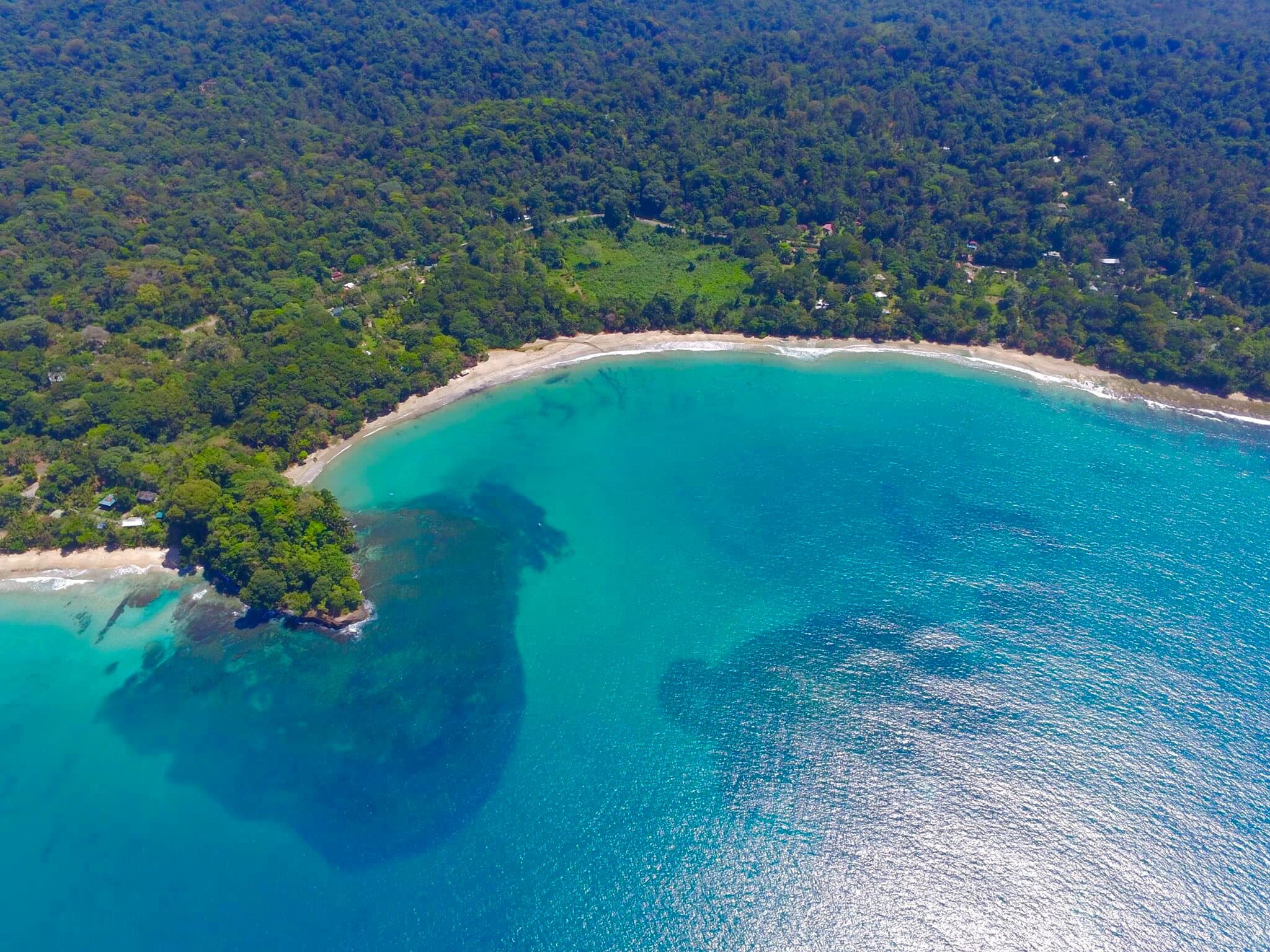
Additionally, Costa Ricans would benefit from some catch-up in terms of modern waste management infrastructure. “Costa Ricans are proud people who understand and appreciate their beautiful country and why people come here. However, there is a lack of knowledge of better modern methods of handling some necessary evils, like garbage disposal.” With the proper receptacles, recycling options and handling equipment, this current negative can turn into a positive.

“In the end, you always follow the money right?”
Despite these issues, Costa Rica’s initiatives to go plastic-free and carbon-neutral show an environmental understanding that is lacking in US leadership. ”In the end, you always follow the money right? Unfortunately, this usually is the case, but it’s actually a good thing for Costa Rica. With tourism holding a commanding leadership role in the economy, the administration understands the only reason people are coming here and not all the other places to spend their vacation money is nature and natural beauty. So whatever they can do to sustain or enhance that makes great business sense. Plus with each new successful initiative, it becomes almost an incredible worldwide advertising campaign that’s free!”
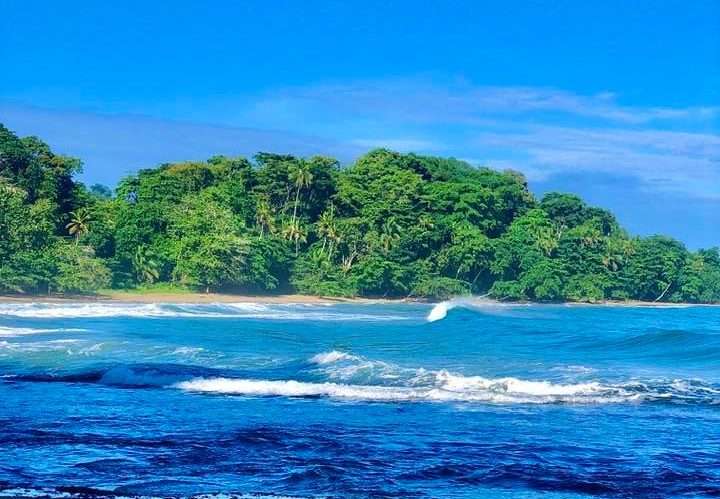
In the States, short-term profits are overshadowing the long term health of the environment even in the face of undeniable evidence. “Our throw-away society in the States is really grotesque. We tear down multimillion-dollar stadiums that are less than 25 years old. In Europe, they repurpose buildings that are many hundreds of years old. It’s not just plastic, but it’s a great place to start and change our way of thinking.”
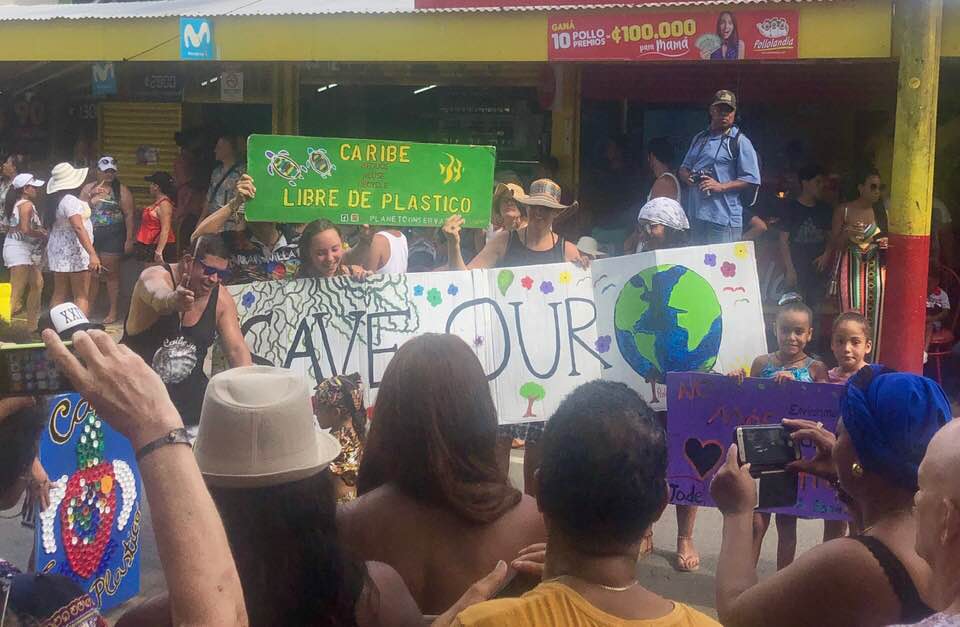
Terry’s choices as a produce buyer to go local and organic have trickled down to micro-decisions in everyday life, as his big life transition has caused him to reflect on his overall impact on the environment. Whether you live in the US or Costa Rica, your decisions as an individual do make a difference, no matter how small they may seem. “First get educated, then think and react accordingly. Take bags to stores, reuse things across your life, refill water bottles, don’t use a straw, buy natural products, soaps, shampoos, cleaning products, go organic, support local, don’t use pesticides or herbicides in your home. The internet is loaded with natural alternatives. Conserve power of all kinds. Choosing healthier alternatives makes you feel good to do your part and you will probably save money too!”
To see more of Terry's photography around Costa Rica, follow him on Facebook @TerryRomp.














